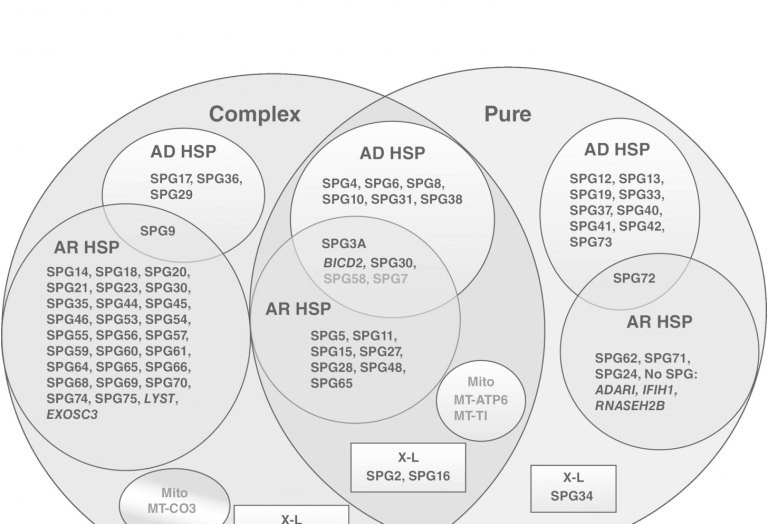Warburg Micro Syndrome and Hereditary Spastic Paraplegia- SPG69
-
by
Warburg Micro Research
- 2 Comments on Warburg Micro Syndrome and Hereditary Spastic Paraplegia- SPG69
ONE THING NONE OF Kira’s doctors or specialists mentioned to us is that Warburg Micro Syndrome has been classified as a form of complex form of Hereditary Spastic Paraplegia, SPG69.
Hereditary Spastic Paraplegias are a group of disorders whose principal feature is progressive spasticity.
“Pure” HSPs are limited to lower limb weakness. “Complex” or “Complicated” HSPs involve other systems of the body.
Why is this important?
Because Warburg Micro Syndrome is so rare, your friends and even your doctors may not know much about it. For that reason, we think that explaining to them that it’s a “complicated form of hereditary spastic paraplegia” might paint a clearer picture. We also think it’s a visual name and could help raise awareness. We will interchange the names SPG69 and WMS to help this mission.
What does this mean to research?
For one, it means we are not alone! The Spastic Paraplegia Foundation is a large, well-funded organization that invests millions each year into research. While there are more than 80 genes that cause HSPs, many of the mechanisms have similar pathways. Thus finding treatment for one form of HSP might help find treatment for the symptoms another. Like WMS genes, a number of other HSP genes are also involved in lipid metabolic pathways and lipid droplet formation in the endoplasmic reticulum. There are already a few candidate small molecule drugs that may target specific disorders.
There may only be one study specific to SPG69 every few years, but there are investigations being done all over the world into Hereditary Spastic Paraplegias. Some are recruiting now, and we urge you to participate.
What is the Warburg Micro Research Foundation doing?
We are contacting scientists and researchers to understand more about HSP pathways. We want to understand how they overlap and develop a broad context for SPG69. Then we hope to share plain English explanations of the theoretical causes of WMS and eventually inform what new research needs to be done. And, as always, joining the patient registry or HSP Natural History Study will help researchers learn about the disease and how it fits.
What else do we need to keep in mind?
There are multiple ways to classify any one disease. Warburg Micro is also a genetic, neurodevelopmental disease for example, and not all disorders in the same category will have many elements in common. That said, we’ve seen some evidence there are biological connections between WMS and other HSPs, and we hope to learn more.
Below you’ll find a diagram that shows how HSPs are classified
WMS, SPG69, as an AR- Autosomal Recessive, complex form.

Hereditary Spastic Paraplegia: From Genes, Cells and Networks to Novel Pathways for Drug Discovery 2
Last updated: 6/24/2022
Disclaimer: Families should consult a medical professional for genetic diagnosis, management and health concerns. We provide external links to help families and caregivers find additional information- this should not imply our endorsement or responsibility for their content.
